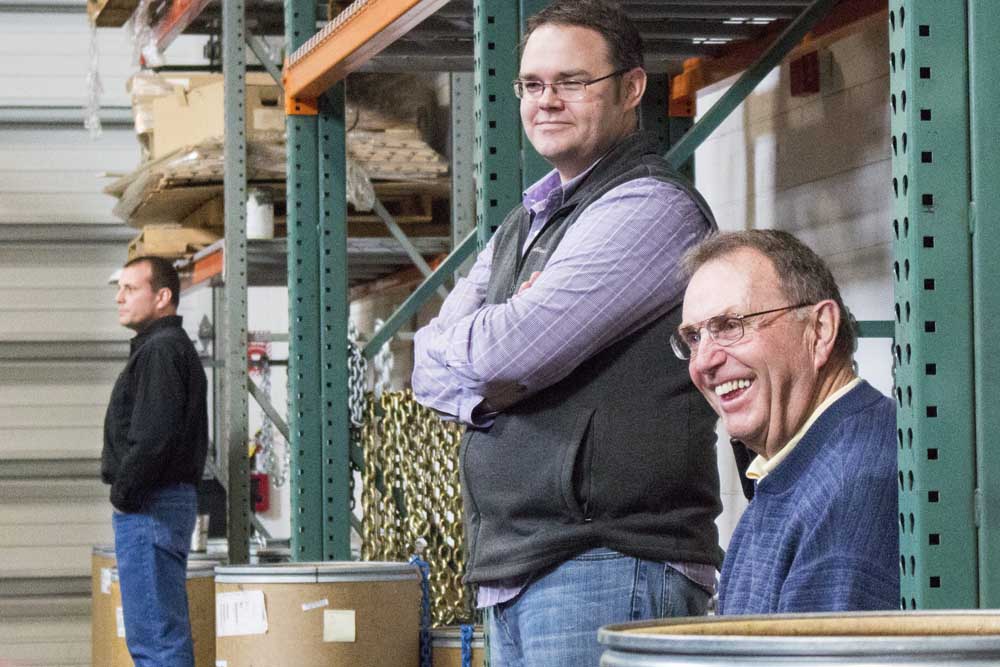Clarks make good on stolen canoe
Published 5:00 pm Sunday, September 25, 2011
CHINOOK, Wash. We are here to right a wrong, said Lotsie Holton.
Trending
She was one of five of Capt. William Clarks descendants who helped carry the 750-pound canoe through a passageway of onlookers assembled at Chinook Point. They had all come to see the Chinook Nation regain what was stolen by the Corps of Discovery more than 200 years ago.
Saturdays gifting of the replica canoe, christened Kthlmin by tribal councilor Tony Johnson, meant much more to the Chinook than restitution.
Kthlmin was the name of a Chinookan chief near Westport who died with no ancestors to carry on his lineage. It is also Chinookan for the moon. The Chinook value each canoe, the most essential survival tool, as much as a family member.
Trending
They took one of our people, as far as were concerned, said Chinook Chairman Ray Gardner.
This is probably one of the most honorable gestures made to our people in more than 200 years, added Tribal Secretary Peggy Disney, a Clatsop tribal member.
The theft of the original canoe came up in conversations between Gardner and Rick Holton of Missouri. He recruited Gardner for the board of American Rivers, a nationwide advocacy group.
Over coffee, Holton mentioned that his wife, Lotsie Holton, was a seventh-generation descendant of William Clark, of the famous Lewis and Clark expedition. Gardner then mentioned the stolen canoe.
On March 17, 1806, Clark claimed in a journal entry that he would take a canoe in lieu of six stolen elk. Also, the expedition couldnt afford to buy a canoe from the Chinook.
Gardner said that Clarks party had left the elk behind. Chinooks dont like to waste things, so they used the elk. Then Chief Coboway attempted to repay Clark with dogs. The Corps of Discovery decided to take the canoe instead.
My next comment was What are you going to do about it? said Gardner.
Clark descendants raised donations for a $30,000 canoe. It was made from African mahogany, fir plywood and red cedar by craftsman John McCallum in Veneta. The canoe measures 37 feet thats10 feet longer than any other in the Chinook Nation including the dog and tail adornments on the bow and stern.
We told the Clarks it had to be 3-feet longer than Grand Rondes, said Sam Robinson, tribal vice chairman.
Tribes from across the Pacific Northwest, including the Clatsop, Duwamish, Haida, Kathlamet, Lower Chinook, Shoalwater Bay, Snohomish, Snoqualmie, Tlingit, Wahkiakum and Willapa attended. The Chinook performed songs and dances for naming, paddling and supper. Attendees feasted on salmon, oysters, fry bread and corn.
The canoe couldnt be launched, as had been planned, because the tides were wrong. In July, though, it will help carry the Chinooks on their annual canoe journey, which features tribes from throughout North America. In 2012, the journey circles the Olympic Peninsula, snakes through the Puget Sound and ends at Squaxin Island, just north of Olympia, Wash.
For now, it heads back to Veneta for additional seating, a new coat of paint and further work on the bow and stern.
The apologetic gift of Kthlmin by the Clark family meant a new hope that the Chinook and other tribes might still be restored by the federal government. They prefer to use the term restored to recognized, because theyve always been around and the government has admitted to their existence as a tribe in the past.
If one family can step up and say theyre sorry, theyre things that will help us start to heal, said Gardner. The federal government should step up and admit they have wronged us.
The Chinook Nation has been struggling for federal recognition for years. U.S. Rep. Brian Baird, D-Wash., introduced the Chinook Nation Restoration Act in 2009. President Bill Clinton also passed this recognition into law, but the Bush administration rescinded the order in 2001.
Representatives from the offices of U.S. Sens. Patty Murray and Marie Cantwell, both Democrats from Washington state, attended Saturdays event and voiced support for restoration of the Chinook Nation. Washington state Reps. Dean Takko and Brian Blake from the 19th Legislative District attended and added support. Several media outlets covered the event, and the story has been distributed nationally through Associated Press.
This is symbolic of what needs to happen for a broader dialogue, said Bud Peyton Clark, a sixth-generation descendant. This event will have a resonating effect across the country.









